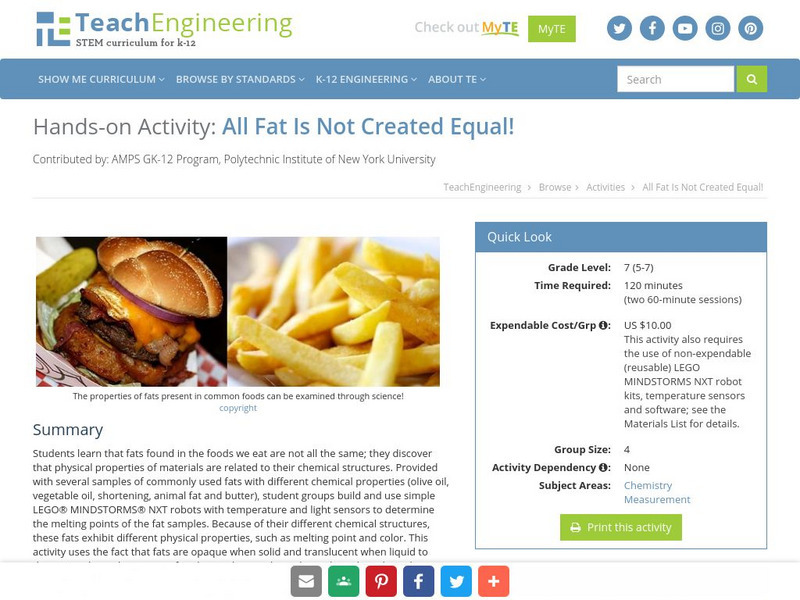Hi, what do you want to do?
Curated OER
How Hot Is It?
Sixth graders use paper cups, black and white lining, thermometers and plastic wrap to conduct an experiment that measures the energy-collecting capacity of various colors. They graph the results.
TeachEngineering
Teach Engineering: All Fat Is Not Created Equally!
Students learn that fats found in the foods we eat are not all the same; they discover that physical properties of materials are related to their chemical structures. Provided with several samples of commonly used fats with different...
TeachEngineering
Teach Engineering: Air Pollution
Students are introduced to the concept of air quality by investigating the composition, properties, atmospheric layers and everyday importance of air. They explore the sources and effects of visible and invisible air pollution. By...
McREL International
Mc Rel: Glue Polymer (Whelmer #15 Learning Activity)
An easy to do activity that investigates the basic principles behind chemical bonding. The activity is written in lesson plan format that meets NSES standards.
Science Struck
Science Struck: Ribose vs. Deoxyribose
Explains what ribose and deoxyribose are, their chemical structure and properties, similarities and differences, their functions, and their biological importance.
Other
The Science House: Invisible Ink
Guidelines for a simple lab demonstration using phenolphthalein, a chemical that changes color depending on whether it is in the presence of an acid or base.
McREL International
Mc Rel: Whelmer #42 Learning Activity: Fire Sandwich
An easy to do activity if you have a Bunsen burner. The activity investigates combustion and heat conductivity. The activity is in lesson plan format that meets NSES standards.








